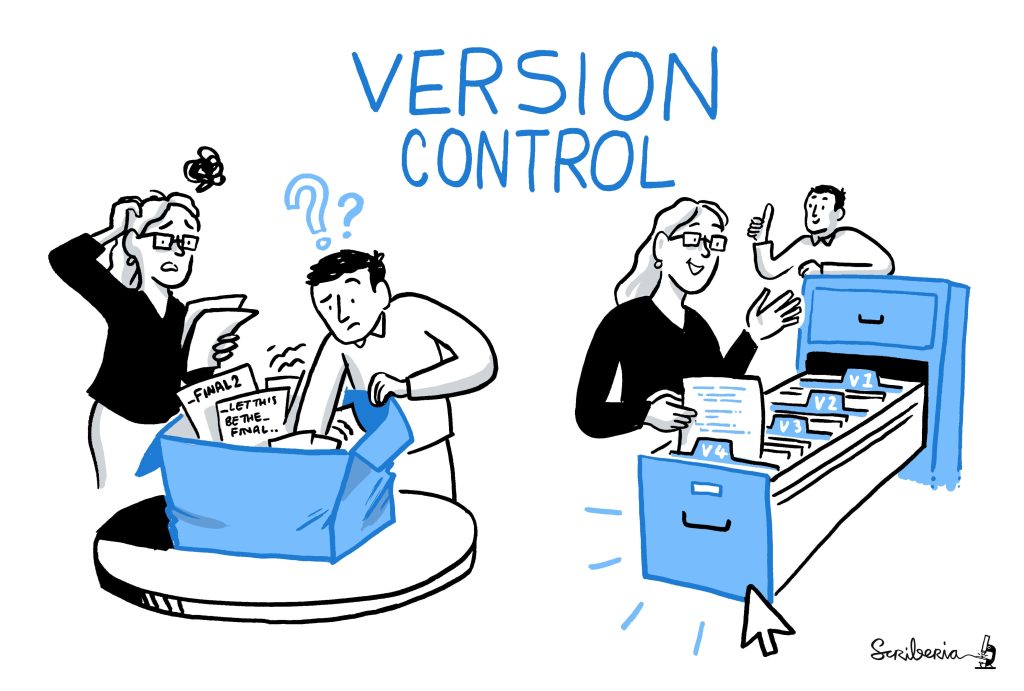 Source: Version control. The Turing Way Community. This illustration is created by Scriberia with The Turing Way community, used under a CC-BY 4.0 licence. DOI: 10.5281/zenodo.3332807
Source: Version control. The Turing Way Community. This illustration is created by Scriberia with The Turing Way community, used under a CC-BY 4.0 licence. DOI: 10.5281/zenodo.3332807
General recommendations
- Store data in long-term readable formats.
- Verify files from time to time.
- Clearly organize and label stored data so that it is easily located and accessible.
- Store embedded content files, such as images and spreadsheets, separately.
- Always save content in its native format to preserve original size or resolution.
- Do not include external links or dynamic content in documents, as these links may be lost over time.
- If you want to save the final version of a PDF document, be sure to keep the original format (e.g., .doc, odt, etc.) separate.
- Also, if you save it as PDF, make sure that the file is preferably set to PDF/A (better for preservation purposes).
- It is recommended to use the institutional storage service, SharePoint/OneDrive, which offers backup copies and allows access to the project’s external collaborators.
- In terms of security, it is highly recommended to use strong passwords and change them from time to time to resist computer attacks and encryption of highly sensitive data.
Storage and collaboration
Two of the biggest risks to research data are accidental loss or unauthorised access. We can mitigate those risks by adopting a few simple practices for storing our data.
Use ICAC storage
During active research the best place to house your data is on ICAC storage, where it will be regularly backed up and subject to greater access controls. This includes the SharePoint or OneDrive software.
Best storage for collaborating
If you have collaborators and are concerned about having stronger access controls to your files, then SharePoint can afford you more protection and control over files than OneDrive.
Sensitive data
If you have sensitive and personally identifiable data, contact us about appropriate storage options. Don’t use third party cloud storage (e.g. Dropbox, Google Drive, etc.).
Unreliable Internet
If you don’t have reliable access to the Internet during your research, then regularly sync your working copy with a master copy on ICAC storage. Consider building in a schedule for syncing your data as part of your research workflow.
Sources:
Bernal, Isabel (2022). Buenas prácticas y herramientas para la gestión de datos FAIR en Arqueología e Historia.
Managing and storing data (University of Surrey). https://www.surrey.ac.uk/library/open-research/managing-and-storing-data
Last updated: 21/02/2024